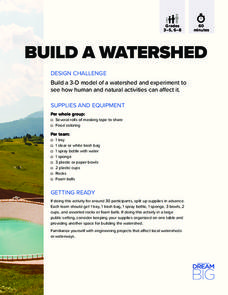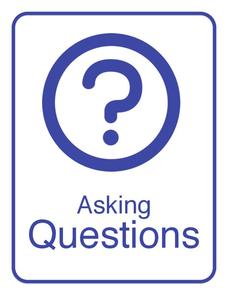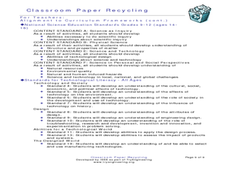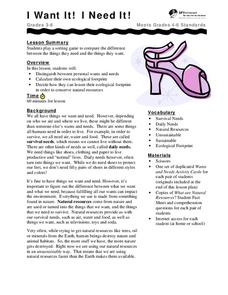Roald Dahl
Roald Dahl Matilda Lesson Plans
Fifty eye-catching pages contain six lessons about Roald Dahl's novel, Matilda. Each lesson has a theme and covers a different subject—literacy, social-emotional learning, science, and geography. Scholars analyze characters, examine...
PBS
Teacher Planning Kits for New School Routines | End of Year
Support your end-of-year instruction with planning kits from PBS. Five planning kits are provided: Special Lessons and Collections; Planning Sheets for Pre-K through 5 and 6-12; Summer Bonus Resources; and Relevant Professional Learning...
Humane Education Advocates Reaching Teachers
Justice for All - Educating Youth for Social Responsibility: Grades K-5
In grades kindergarten through fifth grade, scholars take part in a social-emotional learning unit designed to boost social responsibility. Three hundred pages provide lessons and activities related to everyday classroom practices, the...
DiscoverE
Build a Watershed
What's the best way to learn how watersheds work? Build one! Combining engineering, the water cycle, and ecology concerns, the activity is the perfect fit for an interdisciplinary unit. Teams construct a model watershed with simple...
Bozeman Science
NGSS Practice Posters
Begin the year with an emphasis on the NGSS practice standards. The resource provides an 8x10 size poster for each standard. When hung in a classroom, learners have a consistent reminder of what it means to be a scientist.
Space Awareness
The Intertropical Convergence Zone
Young scientists know it is hotter along the equator, but why is it also rainier? Through the process of completing two experiments and a worksheet, scholars discover the answer is the intertropical convergence zone. First, they...
PricewaterhouseCoopers
Waste and Recycling: Recycling Paper
We take paper for granted, while thousands of trees are being made into the paper we toss in the trash. Start a dialogue about paper reduction and recycling in class, and share the negative effects paper production has on our ecosystem....
Curated OER
The Chesapeake Bay in Captain John Smith's Time
When Captain John Smith visited the Chesapeake Bay in the summer of 1608, what types of animals and habitats did he encounter? Your young historians will analyze primary source documents to answer this question, as well as compare the...
Cal Recycle
Conserving Natural Resources
Trying to plan an engaging elementary science unit on natural resources? Conserve your energy! This five-part series of lessons and hands-on activities has exactly what you need to teach young scholars about the importance of conservation.
Government of South Australia
Don't Waste Your Energy
Don't lift another finger, this physical and environmental science unit has everything you need to begin teaching your class about energy. Starting with a look at the greenhouse effect, these lessons and activities take young scientists...
Forest Foundation
Forests, Carbon & Our Climate
To conclude their examination of forest ecosystems, class members consider the role forests play in the carbon cycle and how forests can offset climate change.
Wild BC
Climate Change Bingo
Here is a 20-box bingo card to use when exploring ways that humans impact the environment. Various environmentally aware activities are listed in the boxes, and learners circulate the room to find someone who practices the different...
Berkshire Museum
Where’s the Water?: Acting Out Science Cycles
Young scientists transform themselves into rivers, oceans, clouds, and drops of water in order to explore the water cycle. After assigning and explaining to students their different roles in the activity, the teacher reads aloud a...
Environmental Protection Agency (EPA)
The Case of the Mysterious Renters
Upper-elementary kids examine the water usage in their own home, then use that data to solve a case in which a landlady is trying to determine how many people are living in an apartment being rented. Combine math, scientific method, and...
Staten Island Zoo
The African Savanna
Are you thinking about taking your class to the local zoo? Kids of all ages love visiting exotic animals in order to learn about biodiversity, habitat, and animal adaptations. Here is a 44-page activity guide that provides educators with...
PricewaterhouseCoopers
Conservation: Water
Here is a fantastic experiment-based lesson plan on water conservation, waste, and filtration. The lesson plan is well-developed and provides background information, discussion leads, and six scripted lab activities anyone can do. The...
Curated OER
Ladybugs, Ladybugs, Ladybugs
Those lovely ladybugs are so cute, and so very useful! Use a short unit to explore insect anatomy, the ladybug life cycle, and the help ladybugs provide organic farmers. The unit is comprised of four short thirty-minute lesson plans that...
Institute of Electrical and Electronics Engineers
Classroom Paper Recycling
After reading about the history and recycling of paper, creative crafters collaborate to think of a new process for making recycled paper. A complete teacher's guide and student worksheets are included. There is no written procedure for...
City and County of San Francisco
I Want It! I Need It!
Discuss wants and needs with your elementary ecologists and get them to consider what would happen to our natural resources if we all got everything that we want. Learners play a card sorting game and take an ecological footprint quiz on...
Baylor College
How Can We Find Out What Is in Water?
Using paper chromatography, water watchers discover that several substances might be dissolved even though they aren't visible. In this case, you will prepare a mixture of three different food colorings for them to experiment with. A...
Baylor College
Dust Catchers
In class, your emerging environmentalists construct dust catchers. They take them home for a week or two, and then bring them back into class to examine under a magnifier. From this activity, they learn what makes up dust and that...
Institute of Electrical and Electronics Engineers
Working with Watermills
In collaborative groups, emerging engineers or environmental scientists plan and construct a water wheel or watermill that rotates for a total of three minutes. Everything you need to carry out this lesson is included: objectives,...
Baylor College
What Is a One Part Per Million Solution?
Water may appear to be crystal clear, but there could be dissolved substances present. Lab groups make a one-part-per-million of a food coloring solution to demonstrate this concept. As part of an outstanding unit about water, this...
Baylor College
Can Nutrients in Water Cause Harm?
Ecology candidates culture pond water organisms over a few days time, then they experiment to find out how increasing nutrients affects the population. As part of a unit on water, this exploration gives your class an understanding of how...

























